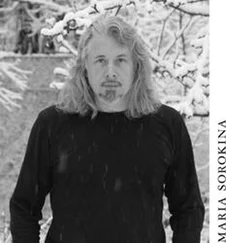The polarities of life are reflected in science in the contrast between the processes of feeding and reproduction; of proteins and nucleic acids; of symbiosis, inquilinism, parasitism, and xenobiosis; in the hypothesis of two lives; and in the ‘tyranny of genes’. It appears helpful to view the cell as an anthill, a colony of lower physiological units, in the light of the fact that absolutely all organisms are in fact colonies and communities, and that life is fundamentally ‘sociogenic’. All life is drawn towards other life and either assimilates or collaborates with it (symbiosis, inquilinism, parasitism, xenobiosis). The guiding principle is not so much the struggle for survival as an organism’s ability to find its place, to compromise, to serve the interests of unity and of other organisms in a kind of ‘egoistic altruism’.
Myrmecology, the study of ants, provides an opportunity to observe collective organisms. It opens up perspectives for understanding, on the one hand, the interaction of cells in an organism and, on the other, that of communities of living beings, including human beings. It also shows how expedient many processes in fact are which, if not closely examined, might lead to superficial conclusions. In ant colonies, we can observe age groups, a calendar, castes and caste-based laws, purposeful organization, training in personal hygiene, social education of the young, collaboration, mutual care, division of labour, general education, ethics, etiquette, taboo foods, donation, greeting, rituals of personal care, hygiene, incest taboos, language, care of larvae, medicine, metamorphosis rituals, honeymoon trips, deference to a leader, warrior castes, surgery, tool making, commerce, visiting, and meteorology.
This study reveals the importance of distinguishing between the true, living automaton and the mechanical automaton or robot; between genetic programming as against planning; of focusing on the distinctive features of the true automaton and how it copes with a situation of crisis, extreme stress, uncertainty, and amekhania (aporia). We find a degree of complexity that is not adequately observed using modern techniques of close study, and a great subtlety in phenomena ranging from the ‘unity of the genotype’ to the compaction of the genetic programme of a large organism into a vanishingly small cell.
Ethology, the study of animal behaviour, especially in extravagant breeding behaviour, offers the prospect of a convergence of the humanities and biology. Rehabilitating the classical world’s location of human beings in the animal realm enables us to review in a new, down-to-earth manner the history and purposes of the development of life on earth.
Analysis of geological, biological, and philosophical knowledge relevant to the history and current situation of life on the planet gives a clearer understanding of the prospects for human theory and practice to contribute positively to the process of life. These prospects are seen less in the area of global planning than in recognition by individuals and the human species at large of their potential role in moving life on earth in an auspicious direction.
Compiled from the final report to the Russian Academic Foundation for the Humanities on the Les (Hyle) research project, September 1999. [O.E. Lebedeva, compiler]
1 1. Konstantin Eduardovich Tsiolkovskii (1857–1935) was a Russian and Soviet rocket scientist and a pioneer of astronautical theory. Tsiolkovskii combined technological expertise with an adherence to the philosophy of Russian cosmism. [AM]Vladimir Ivanovich Vernadskii (1863–1945) was a Soviet scientist who worked in the fields of radiogeology, geochemistry, and biochemistry. He was one of the leading scientific thinkers of Russian Cosmism and is most famous for his book The Biosphere, tr. David B. Langmuir (New York: Copernicus, 1997), which challenged conventional views of Earth’s history. [AM]
2 2. Lev Berg (1876–1950) was a prominent Soviet biologist and geographer who proposed an evolutionary theory in opposition to the views of Darwin and Lamarck. [AM]
3 3. Karl Pearson (1857–1936) was a British biologist and mathematician and one of the founders of biometrics. He was an ardent supporter of selectionism. The research referred to is his investigation of the heritance and inheritance of the Shirley poppy. Karl Pearson, ‘Cooperative Investigations on Plants: I. On the Inheritance of the Shirley Poppy’, Biometrika, no. 2, 1910, pp. 56–100; Karl Pearson, ‘Cooperative Investigations on Plants: III. On Inheritance in the Shirley Poppy: Second Memoir’, Biometrika, no. 4, 1906, pp. 394–426. [AM]
4 4. ‘Flourishing complexity’ is a notion outlined by Konstantin Leontiev (1831–91) defining a period central to a triune process of development of social organisms. The first stage of the process, defined as ‘primary simplicity’, is the birth of a social organism, while the third, called ‘secondary mingling simplification’, is its death. ‘Flourishing complexity’ is the middle stage, the actual life of a social organism, which is characterized by multiple complex tendencies, immanent contradictions, and so on. Konstantin Leontiev, Vizantizm i slavianstvo (Moscow: Dar, 2005). [AM]
5 5. Charles Darwin, The Origin of Species by Means of Natural Selection, 6th edition (London: John Murray, 1876), ch. 10, p. 265. [Tr.]
6 6. Lev Berg, Nomegenez ili evoliutsiia na osnove zakonomernostei (Petrograd: Gosudarstvennoye izdatel’stvo, 1922), ch. 1, p. 21. [Tr.]
Lecture 1, 2 September 1997
This autumn’s semester is a direct continuation of the spring semester course on Principles of Christianity. There we sought to show what is intimate and personal to us in faith. There is always the wretched possibility that faith will be left a notional concept of merely historical interest, a construct in the science of theology, whereas what we are interested in is a fundamental hermeneutics or phenomenology, in the sense of Husserl and Heidegger, or a grammar in the sense of Wittgenstein. 1In order to avoid any risk of straying into mental constructs and lexical exercises, of failing to notice what we are drowning in and merely enumerating concepts, we are going to take a large step backwards to first principles, until, like the defenders of Moscow, we can retreat no further.
Those words, ‘behind us lies Moscow’, whether or not uttered in 1941, were no less applicable in 1812. 2Then Moscow was captured, but it caught fire or was deliberately set ablaze. Moscow was built mainly of wood, the most readily available material, intimately familiar, particularly in those years when the forests of Russia were all but untouched. For a Russian, for a Muscovite, the burning of that wood, that ‘hyle’, was something personal. Leo Tolstoy tells us that a wooden township that has been abandoned cannot but catch fire; that is just something it will do. What is our attitude towards hyle? It continues to be very personal. Today we have a standing column of smoke over Moscow from the daily combustion of 10,000 tonnes of petroleum products. In this city alone, 30 million tonnes of fuel will be burned in a decade.
The origin of our main modern fuel is organic, mostly prehistoric ‘floating forests’, planktonic, free-floating algae, of which there were vast quantities in the water basins from 500 million years to about 30 million years ago. We heat ourselves and our homes and light our world with a bonfire of petroleum and coal; its combustion beneath pistons in cylinders moves mechanisms that catch fish for us, plough our fields, reap the harvest, and deliver the grain to our bakeries.
Just as humankind sat around a campfire in the forest in ancient times, so today it warms itself at a campfire diligently replenished (because who can bear to stand back and watch a fire go out?) with some 5 million tonnes of coal and oil, which will add up to around 15 billion tonnes in a decade. We are starkly reminded that this is necessary by the fact that thousands of people die every day from not being close enough to the fire. Humanity, the greater part of which has managed to find a place more or less near the fire, does sometimes reluctantly glance across to those hapless others, and is acutely aware of those who have failed to find a place there. It sensibly, prudently, takes special care to keep the fire fuelled.
Читать дальше












